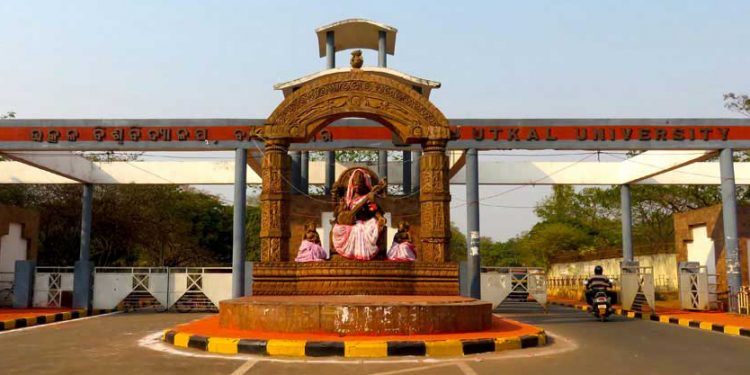Santosh Kumar Mohapatra
Utkal University, an institution with a distinguished history, celebrated its platinum jubilee recently. A suggestion that came up at the celebration was that the institution should be made into a world class university. However, the characteristics that distinguish a university as a world-class institution need to be understood first before it is achieved.
Universities are evaluated by means of their national and international rankings. Three such global rankings — Times Higher Education World University Rankings, The Quacquarelli Symonds (QS) ranking of Britain and Academic Ranking of World Universities (ARWU) — are well known.
The Times Higher Education World University Rankings alone judges research-intensive universities across all their core missions: Teaching (the learning environment); research (volume, income and reputation); citations (research influence); international outlook (staff, students and research); and industry income (knowledge transfer). The first three carry 30 per cent weightage each, while the fourth and fifth carry 7.5 per cent and 2.5 per cent weightage respectively. Not a single Indian university has found a place in the top 300 in this ranking.
Six national institutions made it at least to the top 500, against five last year. In Odisha, IIT Bhubaneswar ranks at 10 nationally but drops to between 601 and 800 in world ranking; NIT Rourkela ranks 24 in national ranking and between 801 and 1,000 in world ranking. Both deemed university Siksha ‘O’ Anusandhan (SOA) and KIIT University ranked at 37 at the national level but were above rank 1001 in world ranking. Utkal University does not feature either in the global ranking or among the top 100 institutions of India.
The QS ranking of Britain, in turn, is based on academic peer review, faculty/student ratio, measurement of teaching commitment, citations per faculty member indicating research impact, employer reputation based on a survey on graduate employers, international student ratio (a measure of diversity of the student community), and international staff ratio (a measure of diversity of academic staff).
According to (QS) World University Rankings 2020, three Indian institutes — IIT-Bombay (152), IIT-Delhi (182) and IISc-Bangalore (184) — have found place among the top 200 universities. As far as Odisha is concerned, in national ranking, IIT Bhubaneswar ranks 20, followed by SOA (49) and KIIT (66-70). Utkal University, does not feature here either.
ARWU, or Shanghai Ranking, is based on quality of education (alumni as Nobel laureates and Fields medallists), quality of faculty (staff as Nobel laureates and Fields medallists), research output, and per-capita academic performance of an institution. According to Global Ranking of Academic Subjects (GRAS) 2019, Harvard University tops the list, followed by Stanford University. Not a single Indian university has ranked in the top 400. IISc-Bangalore is placed in the bracket 401-500, University of Delhi in 701-800, and JNU in (801-900).
Since September 2015, Ministry of Human Resource Development ranked institutions nationally based on the National Institutional Ranking Framework (NIRF). The NIRF is based on teaching learning and resources, research and professional practice, graduation outcome, outreach and inclusivity perception. The ranking methodology gives importance to perception about the institution.
IIT Madras topped the NIRF ranking followed by IISc-Bangalore and IIT-Delhi; from Odisha, NIT-Rourkela ranks 38 followed by SOA (41), IIT-Bhubaneswar (46) and KIIT (50). OUAT and Utkal University ranked between 101 and 150.
One major impediment to the progress of Utkal University is its status as a state university. If the university is accorded a central university status, it will have greater access to government funds. This will ensure development and research facilities.
Research is an important area that the university needs to renovate. To achieve the objective, first, both teaching and administrative vacancies should be filled. There should be fixed time at every stage of research. Library facilities should available 24×7 and free coaching for competitive examinations should be provided.
Students and teachers should be encouraged to critically analyse government policies, which will improve their aptitude for research. Politicians should refrain from interfering both in administration and elections at institutions. Improving student-teacher relations should receive top priority. Alumni, too, can contribute enormously towards the development of the university.
The writer is an Odisha-based economist. e-Mail: skmohapatra67@gmail.com.






































